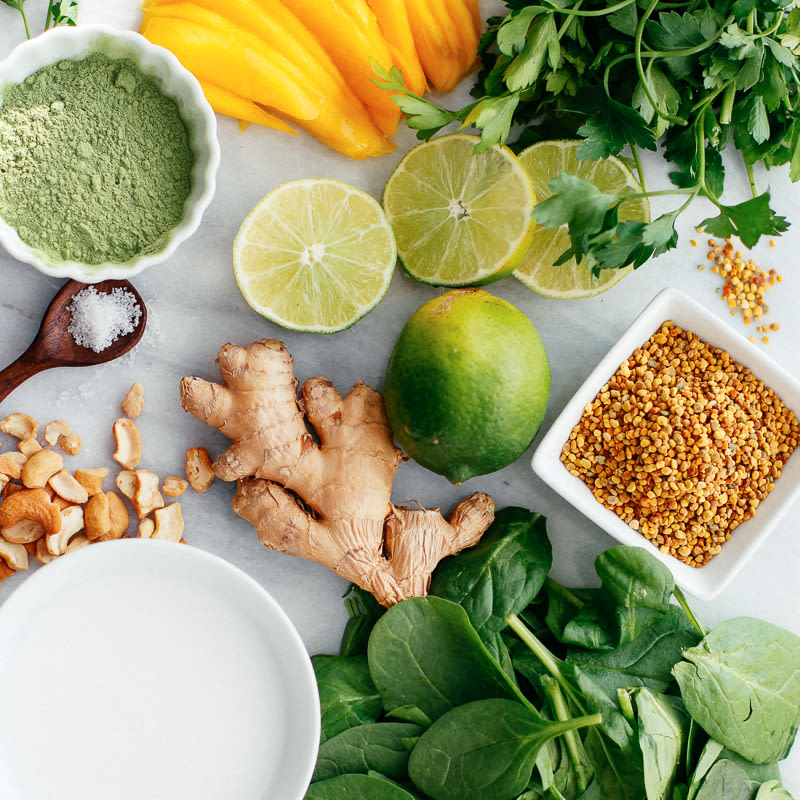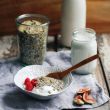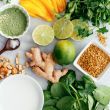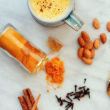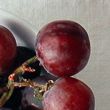Your life is great. You've got a good job, some interesting hobbies, and a fulfilling personal life, but your generally crummy mood could be a question of diet. Listen up:
What you eat is tied to your emotional well-being, like it or not. Which isn't to say that eating a Chipotle Burrito Bowl will immediately sink you into depression. Rather, if you've found yourself feeling down, regardless of all the positive things mentioned above, maybe a nutrition reboot is in order. It's a theory backed up by nutritionist McKel Hill, who advocates food mindfulness to encourage a more positive eating experience. “If you love what you're eating, and it is comforting—maybe it brings back good memories—it's going to boost your mood,” she said, “and there's definitely validity in certain food groups affecting emotions chemically. Any food that has a lot of minerals and nutrients is going to be elevating your mood naturally,”
Think of it as a new type of emotional eating—not the kind where you settle into the couch with a pint ice cream and some Nicolas Sparks book-cum-movie (hey, it's a cliché for a reason). By no means is this a treatment for clinical depression, but for the occasional bout of grumpiness that you can't seem to shake, try these Good Mood Foods, with some recipes courtesy of McKel's website, Nutrition Stripped:
**Omega 3s
**'This can be anything from salmon to mackerel—though I don't really know who eats mackerel,” McKel says. “Omega 3s are really good for overall brain health, which is where mood stability comes from,” You can find them in anything that boasts 'healthy fat,' like nuts, avocados, eggs, and oatmeal. “My favorite Omega 3 recipe is my Nourishing Muesli—it's got a lot of nuts, dried fruit, and fiber. I'll make it in a large batch, and it'll last for a couple of weeks,”
**Vitamin D
**'This is a big one, especially if you're not getting outside enough,” McKel confirms. “That's my number one when it comes to mood,” Beyond supplements, you can find these in non-dairy milks (mylks, if you're so inclined)—so, your almond, soy, and coconut milks are all fortified with vitamin D. Make sure to supplement with calcium and protein for proper absorption. Read more on vitamin D here.
**Anti-Inflammatories
**Omega 3s and antioxidants fall into this category as well, but let's put the spotlight right now on spices. Ginger, turmeric, and cinnamon are all going to protect the body from inflammation—which can, in turn, increase circulation and immune health. Incorporating the seasonings into your cooking is easy! Get a spice rack, and start getting adventurous in your recipe selection. Mediterranean and Middle Eastern cooking are especially high in anti-inflammatory ingredients. “ Turmeric Milk is one of my favorite recipes for this,” McKel shares. “It’s really comforting. There are a lot of ways to boost your mood that aren't just chemical—it’s also on the mental and emotional level. I love the turmeric milk because it’s really high in antioxidants, but it’s also comforting because it’s warm,”
Probiotics
Anything that's going to help with digestion is going to help your mind-body balance. “If you have poor digestion or undiagnosed food sensitivity, that really impacts your mood,” McKel explains. “The more that you have whole foods that are naturally higher in fiber, it’s going to help digestion and provide you with all those nutrients. I love probiotics. It’s best to get them from your food, from yogurt, or kimchi, or fermented food, but if you don’t have access to that, having a good probiotic pill would be great,”
Chocolate
Oh, coco, you beautiful standby. Dark chocolate has compounds to elevate your serotonin levels, in addition to being a good source of antioxidants, McKel explains. “Also it just tastes really good so there’s a level of emotional and mental elevation there because it’s comforting,” she says, recommending her Raw Chocolate Malt Brownie Bites. “That’s probably the main element in chocolate in general,”
Photos courtesy of McKel Hill. For recipes, visit Nutrition Stripped.


